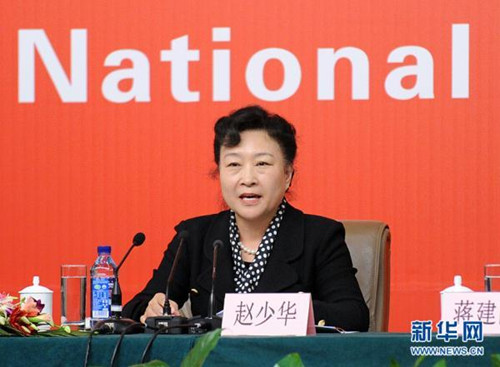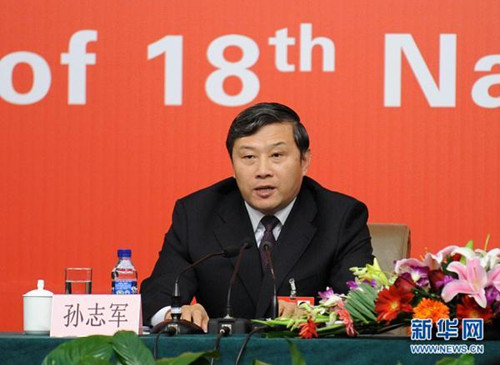
Officials present at the press conference are also members of a leading group of cultural system reform. They introduce the progress in reform and development of the cultural industry and the building of public cultural service system.

Officials present at the press conference are also members of a leading group of cultural system reform. They introduce the progress in reform and development of the cultural industry and the building of public cultural service system.
Developing and reforming the cultural industry, is a key focus of delegates at the Party Congress and the public. Representatives from various cultural agencies have held a joint press conference on the issue. They laid out specific targets and actions for cultural reforms and the strengthening of soft power.
Culture and the arts are an important part of China's soft power. The country began refining its cultural industry 10 years ago. In 2002 at the 16th Party Congress, non-profit cultural undertakings were separated from the commercial cultural industry. So how effective has this been?
Zhao Shaohua, Chinese Vice Minister of Culture, said, "We have basically put in place a new performing arts system with companies as main players, supported by public institutions. Over 99.5 percent of more than 2000 the state-owned cultural institutions have completed their reform tasks. We have to increases the vitality of enterprises and continue to reform."
So far, 580 printing houses, 3000 bookstores, and 850 film studios have made the switch to for-profit. And so have 99.5 percent of China's arts troupes.
By 2020, the cultural industry is expected to be a pillar industry of the national economy; another goal is increased international competitiveness. A senior party official says cultural entities need to stand on their own feet to develop.
Sun Zhijun, Deputy Director, CPC Central Committee Publicity Dept., said, "As for profit-oriented cultural entities, once they've been transformed into enterprises, they are no longer public institutions. They are independent market players that independently run their own companies and are responsible for their own profits and losses."
Sun also says the basic role of cultural programs is to meet the cultural needs of the public. The free admission policy adopted in 2008 gives more people access to museums and galleries.
This promotes a better sense of identity among Chinese. And encouraging creativity strengthens the country's soft power.
After more than 30 years of economic prosperity and social stability, China is playing more attention to its culture, heritage and arts. Generally speaking, the country faces a conflict between resources and development. So developing the cultural industry, which uses few sources but can generate greater profit, is a natural focus for economic transition.

Copyright ©1999-2011 Chinanews.com. All rights reserved.
Reproduction in whole or in part without permission is prohibited.